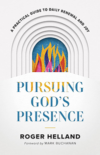
Spiritual writer Jack Deere wrote, “The biggest difference between the first-century church and the modern church in the Western world is the first-century church was a praying church. We are a talking church.”[1] When I lead in prayer, I try to pray more and talk less. Let’s follow the example of the first-century disciples and ask one thing of Jesus, “Lord, teach us to pray [not talk]” (Luke 11:1). If you haven’t done so, please read my previous articles: Lord, Teach Us to Pray part 1, Lord, Teach us to Pray, continued. I now complete my treatment of the last two sections of the Lord’s Prayer in Luke 11:1-4.
Pardon: Jesus teaches us to pray, “Forgive us our sins, for we ourselves forgive everyone who is indebted to us” (Luke 11:4). There’s a reciprocal quality to this prayer. We must ask for God’s pardon as we also pardon others. Drawing the metaphor from the financial world, “debts” and sins are used interchangeably. When we sin, we violate God’s standards and become indebted to him with a penalty to pay him back. Debtors can become slaves to creditors. We can ask God to pardon us just as we regularly (present tense) pardon others, a condition of tit for tat. Unforgiveness simmering through anger, resentment, revenge, bitterness, and grudges toward others is a steel wall barrier to kingdom prayer and access to God’s liberating forgiveness. Are there hostile barriers between you and anyone? If so, how’s your spiritual and prayer life? Psychologists and spiritual directors tell us unforgiveness and anger are lethal and can even become a Satanic stronghold for spiritual and mental health (see Eph. 4:26-27). Forgiven people forgive. Paul says, “Be kind to one another, tender-hearted, forgiving one another, as God in Christ forgave you.” (Eph. 4:32)
Years ago, when I was a PhD student at McGill University in Montreal, our firstborn daughter Melissa was born. At the time, I held Grand Canyon-sized resentment toward my stepfather in California. I hadn’t contacted him in months and refused to phone him to announce our exciting news. My wife, Gail, pressed me on it. But I wouldn’t budge. She let it go for a few days but brought it up again to confront me with this debt! So, here I was, a seminary graduate with a Master of Theology degree trained for a pastoral and teaching career, now working on a doctoral degree. And I couldn’t bring myself to forgive my estranged stepdad. That dog wouldn’t hunt! I felt the Spirit’s persistent conviction and eventually chose to forgive him. The churning in my stomach vanished. Joy and freedom rushed in to replace the midnight madness. I phoned him, and we eventually travelled to California to show off our new baby. Forgiveness won. The Lord’s prayer worked. I want to stay on good terms with God and others. Don’t you? Any sin or unforgiveness in our life threatens that. I want to live debt-free. I intend to regularly confess my sins, repent, and ask God to forgive me when I blow it. The flip side is I intend to keep short accounts with others and cancel their debt owed me when they sin against me.
Protection: In Luke 11:4, the last request Jesus teaches us to pray is, “And lead us not into temptation,” while Matthew 6:13 adds, “But deliver us from evil” (literally, “the evil one). The Greek word for “temptation” is peirasmos. It can mean either “test” or “temptation.” A test challenges and can fortify our character. A temptation entices us to succumb to sin. God doesn’t tempt us to evil (James 1:13). So, we pray God won’t lead or bring us into temptation near a dark street in Vanity Fair where sin or Satan lurk, like a prostitute, luring us to satisfy our cravings illegally. James also shows the connection between tests and temptation and how to handle them (1:2-5; 13-15). I grew up as a pagan (heathen) in Southern California. My sin-infested lifestyle of immorality, drugs and drinking, devoid of God, exposed my defenceless soul to a torrent of enticing, deadly temptations. “I couldn’t get no . . . satisfaction!” Even though I’ve been a Christian for over five decades, some of those temptations sneak in, particularly in unguarded moments, especially when I experience tests, trials, or prayerlessness. John Wesley cautioned, “Neglect of prayer is a grand hindrance to holiness.”
Jesus teaches us to pray for God’s protection from evil and the evil one who engineers ways to turn tests into temptations where we might sin. This is spiritual warfare where we pray for God’s protection against the devil and demons – from the snare of Satan through the seduction of sin – that we don’t yield to temptation. Lord, teach us to pray Kingdom prayer!
Ignite Prayer Canada: Explore Ignite Prayer Canada. Our vision is to see 1,000 churches across Canada cultivate vibrant cultures of Kingdom prayer. Our mission is to help churches become houses of prayer. Prayer isn’t a religious ritual, duty, or agenda item. It’s a power-packed and transformative practice of communication and communion with God that activates his Kingdom mission on earth. We offer resources, training, newsletters, leaders forums, networking, and events to teach you to pray. Check our website and become a participant or co-sponsor: igniteprayer.ca

Roger Helland is the prayer ambassador of The Evangelical Fellowship of Canada, lead team member of Ignite Prayer Canada, and author of Pursuing God’s Presence. (available at Amazon.ca)
[1] Jack Deere, Why I am Still Surprised by the Power of the Spirit. (Zondervan, 2020), p. 172.

Hi Roger, I thank you for the deep dive into prayer, why to and how too. I’m especially grateful for your perspective on temptation and testing. I believe the church so often confuses these two. Prayer leads one to understand that God protects us from temptation if we ask, testing as you stated so well is not God tempting but drawing us into deeper relationship and reliance on Him.
Your attention to “less talking, more praying” is appropriate for the times in which we live. 60% of the words in Jesus’ model prayer were focused on our human and spiritual needs. The focus of our prayer practice matters. Lord, teach us to start and to stay focused on you in the midst of the chaos of our times. With your perspective, we will see our times the way you do! Thanks for being a thought leader, God,